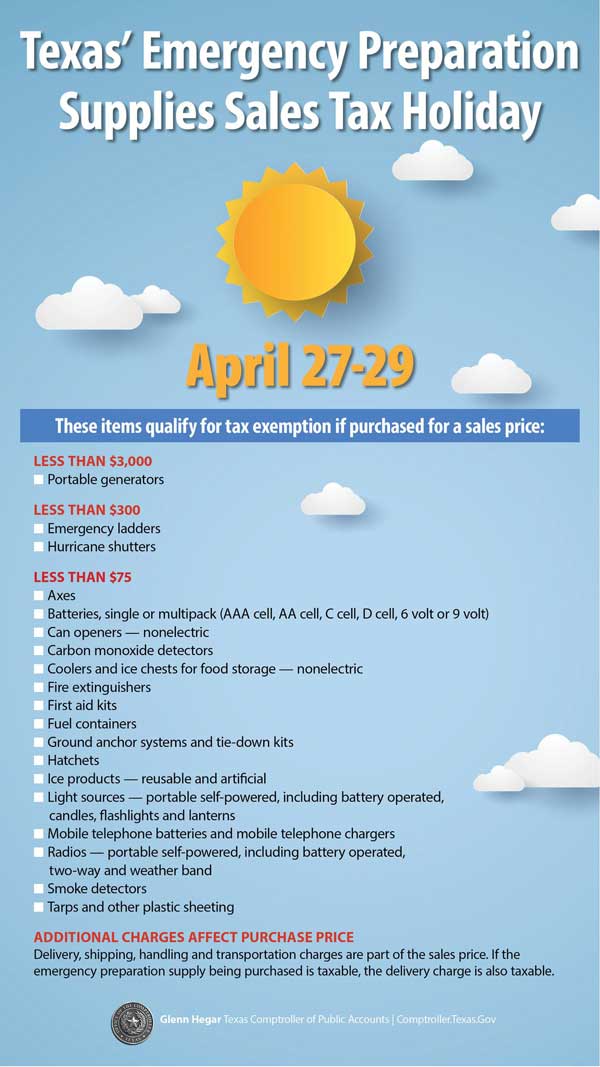Hurricane Preparedness 2021
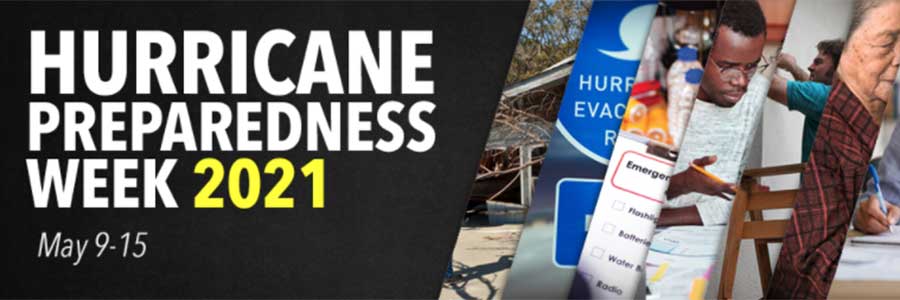
Be ready for hurricane season. Today you can determine your personal hurricane risk, find out if you live in a hurricane evacuation zone, and review/update insurance policies. You can also make a list of items to replenish hurricane emergency supplies and start thinking about how you will prepare your home for the coming hurricane season. If you live in hurricane-prone areas, you are encouraged to complete these simple preparations before hurricane season begins on June 1. Keep in mind, you may need to adjust any preparedness actions based on the latest health and safety guidelines from the CDC and your local officials.
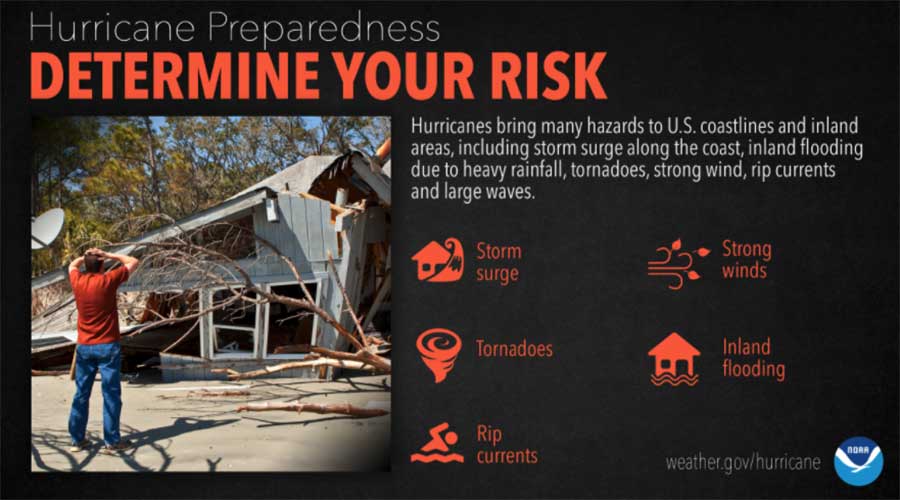
Find out today what types of wind and water hazards could happen where you live, and then start preparing how to handle them. Hurricanes are not just a coastal problem. Their impacts can be felt hundreds of miles inland, and significant impacts can occur without it being a major hurricane.
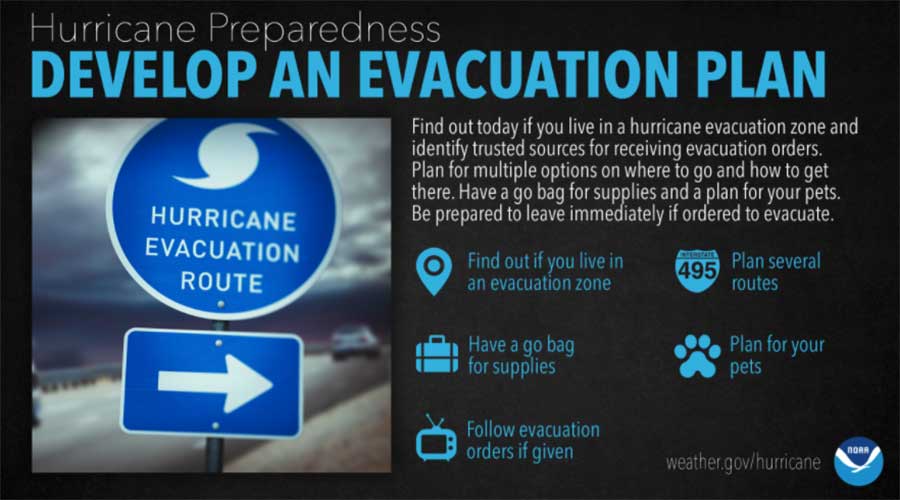
The first thing you need to do is find out if you live in a hurricane evacuation zone. If you do, now is the time to begin planning where you would go and how you would get there. You do not need to travel hundreds of miles, but have multiple options. Your destination could be a friend or relative who doesn’t live in an evacuation zone. If you live in a well-built home outside the evacuation zone, your safest place may be to remain home. Be sure to account for your pets in your plan. As hurricane season approaches, listen to local officials on questions related to how you may need to adjust any evacuation plans based on the latest health and safety guidelines from the CDC and your local officials.
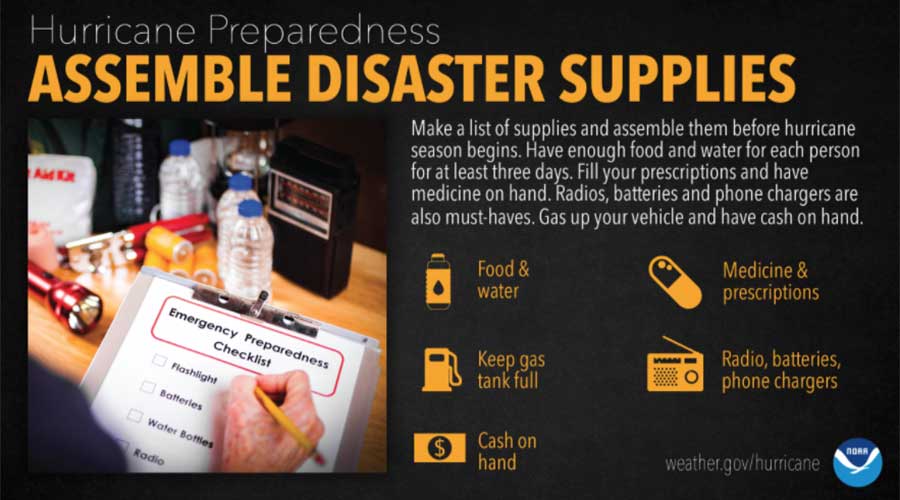
You’re going to need supplies not just to get through the storm but for the potentially lengthy and unpleasant aftermath. Have enough non-perishable food, water and medicine to last each person in your family a minimum of three days. Electricity and water could be out for at least that long. You’ll need extra cash, a battery-powered radio and flashlights. You may need a portable crank or solar-powered USB charger for your cell phones.
If you need to go to a public shelter, the CDC recommends bringing items that can help protect you and others from COVID-19, such as hand sanitizer with at least 60% alcohol, bar or liquid soap, disinfectant wipes (if available) and two masks for each person. (Children under two years old and people having trouble breathing should not wear face coverings.)
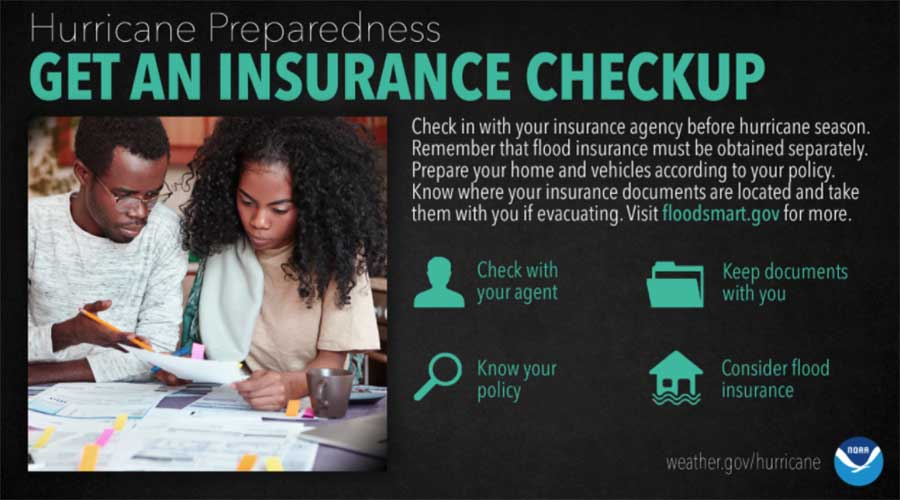
Call your insurance company or agent and ask for an insurance check-up to make sure you have enough homeowners insurance to repair or even replace your home. Don’t forget coverage for your car or boat. Remember, standard homeowners insurance doesn’t cover flooding. Whether you’re a homeowner or renter, you’ll need a separate policy for it, and it’s available through your company, agent or the National Flood Insurance Program at floodsmart.gov. Act now as flood insurance requires a 30-day waiting period.
- FLASH Insurance Guide: If Disaster Strikes, Will You Be Covered?
- Find available coverage at floodsmart.gov
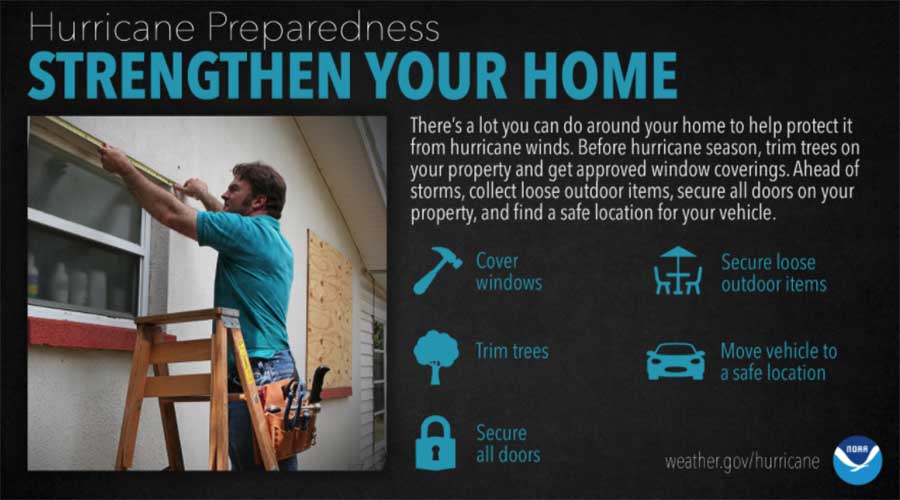
If you plan to ride out the storm in your home, make sure it is in good repair and up to local hurricane building code specifications. Many retrofits are not as costly or time consuming as you may think. Have the proper plywood, steel or aluminum panels to board up the windows and doors. Remember, the garage door is the most vulnerable part of the home, so it must be able to withstand the winds.
- FLASH: How-To Videos
- Protect Your Home From Flooding Video (English/Spanish)
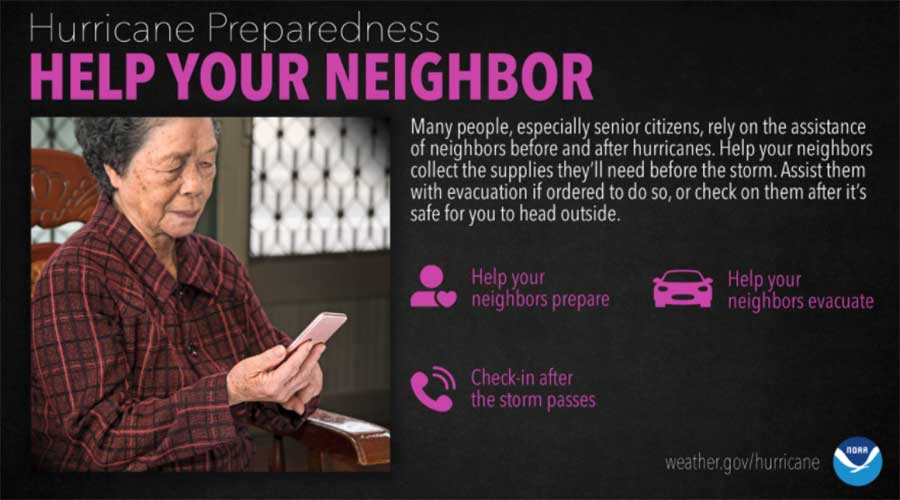
Many Americans rely on their neighbors after a disaster, but there are also many ways you can help your neighbors before a hurricane approaches. Learn about all the different actions you and your neighbors can take to prepare and recover from the hazards associated with hurricanes. Start the conversation now with these Neighbor Helping Neighbor strategies but remember you may need to adjust your preparedness plans based on the latest health and safety guidelines from the CDC and your local officials.
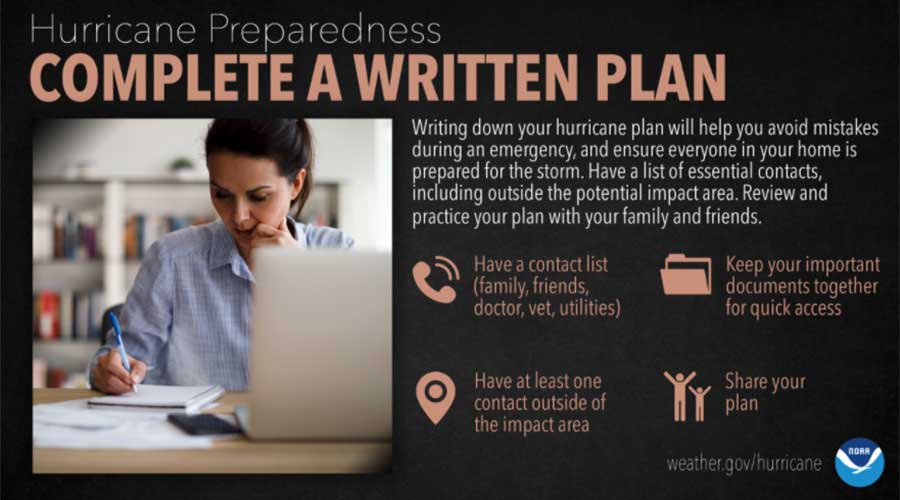
The time to prepare for a hurricane is before the season begins, when you have the time and are not under pressure. If you wait until a hurricane is on your doorstep, the odds are that you will be under duress and will make the wrong decisions. Take the time now to write down your hurricane plan. Know who issues evacuation orders for your area, determine locations on where you will ride out the storm, and start to get your supplies now. Being prepared before a hurricane threatens makes you resilient to the hurricane impacts of wind and water. It will mean the difference between being a hurricane victim or a hurricane survivor.

